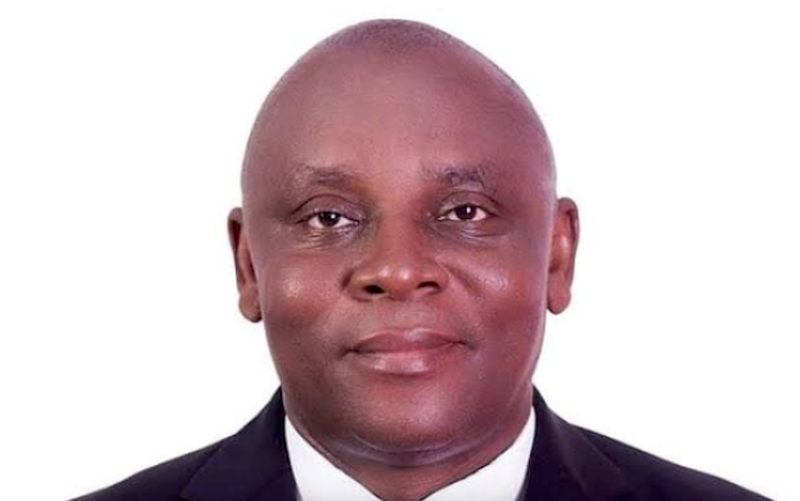With just five months to hit his midterm, Gov. Umo Eno has announced that he would be holding 10 town hall meetings and three summits in 2025 to obtain feedbacks and generate new ideas to reset his policy thrusts. The town halls will hold in the 10 federal constituencies of the state while the summits will hold in Uyo with focus on power generation; tourism and business development.
At each town hall, the people would be expected to summit a memo to the government detailing the important areas of needs in their communities. These would be collated and incorporated into the 2026 budget. This is a typical bottom-up approach in management decision and leadership process. By involving local communities, individuals or village organizations and grassroots initiatives, the government wants ordinary people to be involved in decision-making, choose what best serve their needs and take ownership of government’s programs. In other words, the governor wants the ‘R’ in his ARISE agenda to originate from the people.
Sociologists and development economists believe that bottom-up approach, unlike top-down approach, prioritizes local needs and context; endears government to the people, enhances community and rural development and minimizes inter-communal rifts. Even before the first town hall meeting holds in February, I can almost guess correctly what the litany of requests would consist of: good roads; water; healthcare; more teachers for community schools; subsidizing farm inputs and such stuffs.
Town halls are very widely used in the western democracies to provide a platform for exchange of ideas between the citizens and their leaders. This would be the first time an administration in the state has adopted this approach is fashioning out its policies.
But we’ve always had summits. Gov. Udom Emmanuel held education summit towards the end of his administration. Obong Victor Attah had economic summit in 2002. Umo Eno’s three summits will bring together experts and professionals in power generation and tourism specifically to generate ideas on how to develop the sectors.
The governor wants the state to have a 24-hour electricity supply in 2026. Akwa Ibom State has an independent power plant built over 20 years ago, but unfortunately, it has not achieved its objectives. It has been mismanaged and I understand that the place is a haven of corruption, so much so that it is hugely indebted to its gas supplier.
Recently, the government instituted an audit into its finances and assets; and two months ago, its chief executive was fired for incompetence and dereliction of duty. Part of the problem was the inhibitive regulatory framework of the electricity sector which barred states from generating and distributing their own electricity.
Now that the law has been amended and state governments can now generate and distribute their own electricity to their people, the power summit should bring together egg heads in that sector, from across the country and beyond, to sit together and develop a step-by-step guide on how to achieve a stable power supply for the state.
Tourism is also another priority area for the state. With its own airline, two five- star hotels, an 18-hole golf course, a long beautiful white-sand beach, a world-class football stadium and three smaller ones, Akwa Ibom State is easily Nigeria’s tourist destination for leisure and business.
A recreation centre comprising a nine-hole par three golf course and a 10,000-capacity conference facility are in the works in the heart of the city. With these facilities, the government believes that tourism should be developed into a viable industry and the expectation is that the summit will develop a roadmap on how best to achieve this.
Akwa Ibom has six months of dry season beginning from late October and lasting through April. This means a tourism calendar that consists of golf tournaments; football matches; beach football and volley ball and cultural festivals could be developed to attract visitors to the state.
The third summit the government intends to hold this year would be with Akwa Ibom people who have reached the peak of their careers in different areas – finance; oil & gas; aviation; medicine; media; the professions; military; etc. These persons would be constituted into a network to serve many purposes, chief among which is a think tank to government and mentors to the younger generations.
I’m particularly fascinated by the governor’s mentorship development plan for Akwa Ibom youths, most of whom have had no role models in their lives. In the absence of good role models and mentors, these youngsters only have social media influencers; politicians and political thugs to look up to, and the result has been emergence of decadent and deviant behaviours in them.
For them, election rigging and electoral violence is the only sure means to attain political power and politics is the only way to make a living or make big money. But a good mentorship program helps in instilling increased confidence in the mentees, in addition to offering career guidance, skill development; problem-solving skills; networking opportunities; fresh perspectives to life and leaving a lasting legacy, among other benefits.
In addition, I ask the government to bring back Boys’ Scout; Girls Guide and Man o’ War to our schools. These organizations helped to mould our character when we grew up, and there’s no reason why our youths should not benefit from them. This year should be very hectic for the governor. I wish him the best.
